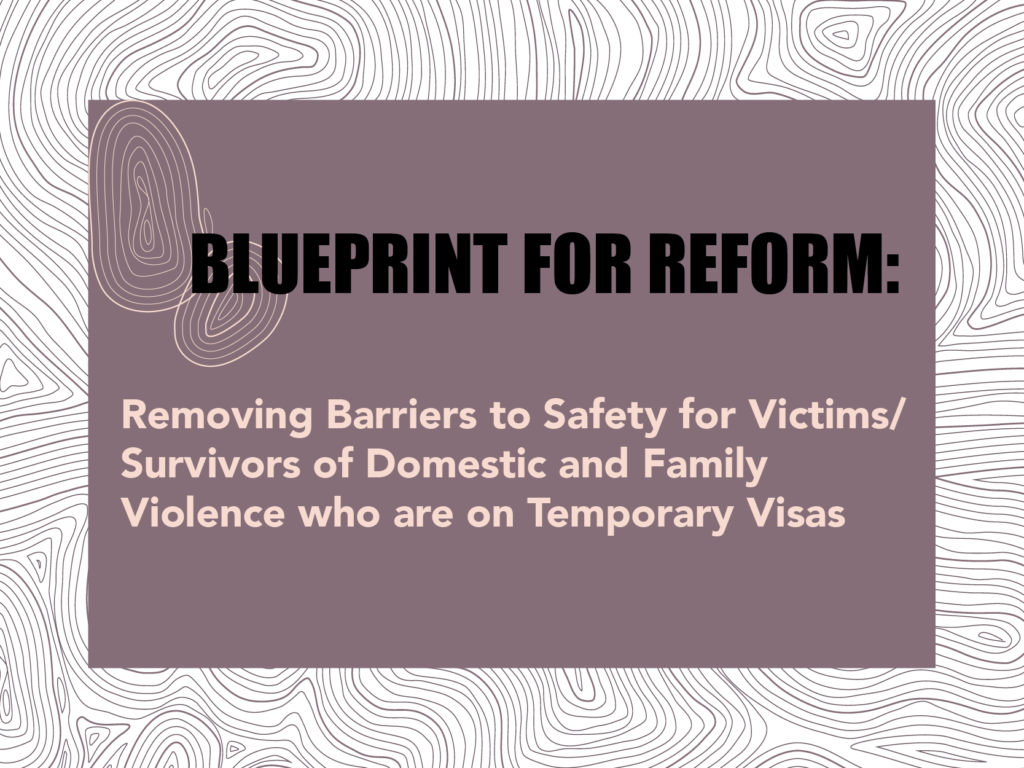Removing Barriers to Safety for Victims/Survivors of Domestic and Family Violence who are on Temporary Visas

Violence against women is a grave violation of human rights. The National Plan to Reduce Violence Against Women and their Children envisions an Australia free from all forms of violence and abuse against women and their children.
On the international stage, Australia is leading the way in efforts to implement the Convention on the Elimination of All Forms of Discrimination Against Women, the Women, Peace and Security Agenda and the 2030 Agenda for Sustainable Development and uphold human rights bodies such as the Human Rights Council and the United Nations Commission on the Status of Women.
Victims/survivors should be empowered to make decisions which promote their safety, well-being and recovery through access to specialist services including housing, health, legal, social security, education and stable visa status. Victims/survivors and their dependants should have a right to determine their place of residence without impediment from the perpetrator.
In 2018 the National Advocacy Group on Women on Temporary Visas Experiencing Violence produced a Path to Nowhere report that examined the issues for women on temporary visas experiencing domestic, family and sexual violence and their dependants. Report findings highlighted a national crisis, affirmed by evidence and reviews nationally, which requires immediate law and policy reform by the Australian and State and Territory governments.
Women and their children have the right to be safe from all forms of violence in Australia, regardless of their visa status. This Blueprint sets out necessary reforms to achieve safety for all women.
To improve women’s and children’s access to safety and justice, we call on the Commonwealth, State and Territory governments to implement the following three steps:
1. Improve the migration system so that all women on temporary visas who experience domestic, family and sexual violence and their dependants can access protections, services and justice.
2. Ensure eligibility and access to services and government support are based on women’s needs for safety and recovery, regardless of their migration status.
3. Ensure that women on temporary visas who have experienced domestic, family and sexual violence and their dependants have immediate and full access to safety, protection, justice and fully funded specialist support with demonstrated gender expertise and cultural competency.
Download Blueprint for Reform here: Download social media images here.

